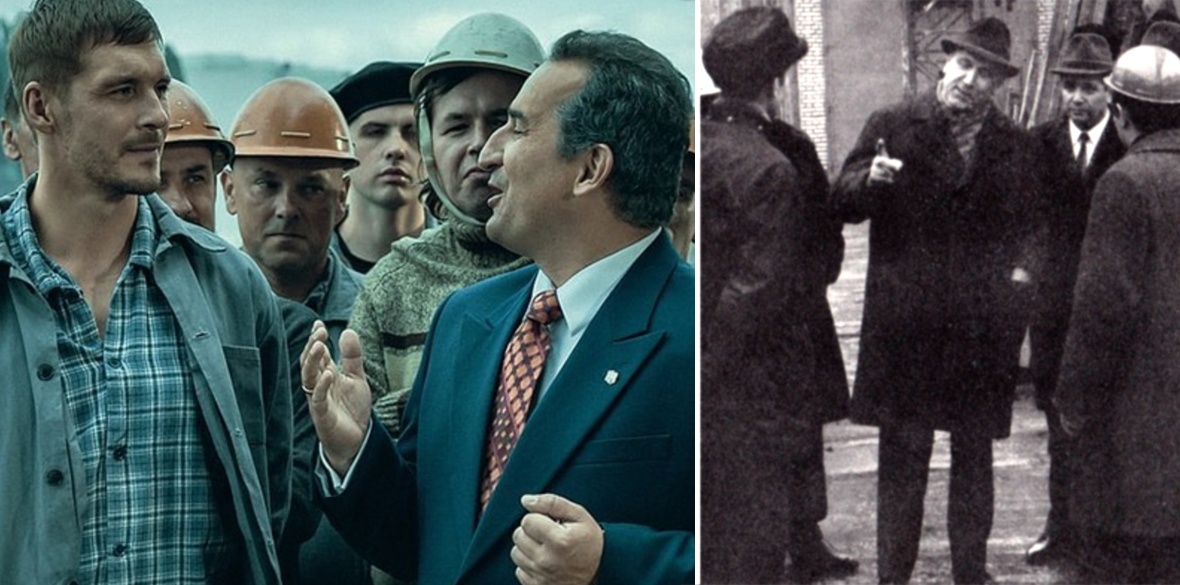This is the last article you can read this month
You can read more article this month
You can read more articles this month
Sorry your limit is up for this month
Reset on:
Please help support the Morning Star by subscribing here
GIEREK, a film just released in Britain by Michal Wegrzyn, is a biographical feature covering the life and deeds of first secretary of the Polish United Workers Party (PZPR) Edward Gierek through the decade of the1970s.
The end of the 1960s was momentous time for the Polish People’s Republic as it tried to overcome political and economic stagnation and workers’ protest. Gierek was elected first secretary – ie head of the ruling party – to lead a revival.
Oddly for a film which covers that period of Polish history, General Wojciech Jaruzelski does not appear by name, although “the General” (Antoni Pawlicki) wearing large sunglasses does, a case perhaps of very-similar-but-legally-distinct.
The eponymous Gierek (Michal Koterski) is treated as a messiah for all Poland’s ills when he’s entrusted with the position of PZPR leader. Depicted as a man of the people, he eschews a cult of personality which is nevertheless foisted upon him.
He cares for the people’s livelihood, from the state of factory canteens to the lighting of kitchens in council apartments. His policies will open up a new golden age for Poland and bring the country “independence” from the Soviet Union.
But he has not chosen his advisers wisely, and a Judas in the form of his old friend Wlodzimierz Maslak (Sebastian Stankiewicz) conspires with the General and shadowy Soviets to bring Gierek down. Near the end, arrested and sent to a prison camp when martial law is declared, Gierek must suffer for the party’s mistakes.
As this suggests, the film plays on the extremely tired and overplayed trope that eastern European states were completely beholden to the USSR and little more than colonies, with the Soviet ambassador in the film even asking if Poland is not in fact subordinate to Soviet wills. Needless to be said, such ideas have been consistently debunked and are overly simplistic if persisting anti-communist propaganda.
Beyond this there are several interesting themes to note. The building of industry is portrayed as positive, as is employment, something we don’t see every day now with newspapers owned by oligarchs constantly reminding us how the working class don’t matter as long as the yacht money keeps rolling in.
Generally speaking, Gierek’s policies are shown in a positive light and he is recognised as a socialist, while the General’s policies are depicted as coming from a place of hard-line intrigue and scheming.
The film mentions Lech Walesa in passing and Solidarnosc is implied to at least partially be an invention of the General and his cronies. When Gierek is advised that he can change the political-economic system of Poland, he rejects the vision of privatisation. As such, the film implicitly suggests that socialism is desirable and an objective good.
While the film blames Poland’s economic woes on a KGB general (Krzysztof Tyniec) conspiring with the General to overthrow Gierek, the West and its loans are not viewed as a panacea for Poland’s problems. The film depicts Western bankers, as predators, hoping to milk the country for everything it is worth and take advantage of the situation.
Further on, the film becomes a conspiracy theory-laden fever dream, with every event being the result of strings pulled in the shadows by corrupted party members and Gierek being poisoned in a bid to get rid of him once and for all.
Artistically it is not much to write home about either. Ultra wide-angle shots are used in some scenes to create a claustrophobic effect or imitate the roundness of an old television, but the novelty wears off quickly. Unfortunately, the acting can be rather wooden at certain points as well.
Gierek is not a documentary on Polish history but rather a contentious simulation of it, and despite some interesting titbits sprinkled between the lines, it does predictably smear communism with well-worn out cliches.
However, to its credit, it is by no means supportive of neoliberal shock therapy, a refreshing surprise. Overall it is entertaining, if a bit long, and though not wholly memorable it is worth the ticket price at your local cinema.












